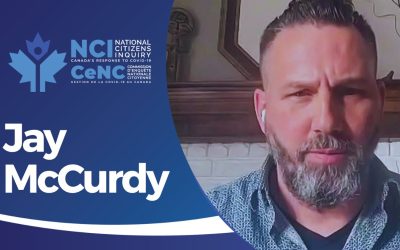Students at the majority of Alberta’s charter schools outperform other students in the province on standardized exams, according to a new study that has prompted calls to introduce these alternative schools in other parts of the country.
Alberta is the only province with charter schools, which are publicly funded but are accountable directly to the education ministry rather than to school boards. They teach the same curriculum as public schools but have different approaches to learning or cater to specific student needs or interests, such as science or arts.
The study, the first major report to look at the success of charter schools in Canada, was based on provincial test results from 1997-2001. It concluded charter school students scored above the provincial average in subjects such as English, science and social studies and, in some cases, showed greater improvement over several years than students in other schools.
There are 10 charter schools in the province. Some focus on “back-to-basics” education or cater to gifted students, while others are designed for students learning English as a second language or those who have fallen behind in the regular public system because of their poor social or academic skills.
Overall, the students performed well and, at some schools, they were exceptionally successful, the study showed. In three of the 10 schools, all of the students in Grades 3, 6 and 9 achieved or exceeded the acceptable standard of excellence set by the government in each of the subjects in which they were required to write provincial exams.
As well, charter school students outperformed their peers on standard exams in 60% of the 180 comparisons researchers made between eight of the charter schools and other provincial schools over a three-year period. Charter school students also did better than other students in their own region, according to the study, which will be published later this month by the Society for the Advancement of Excellence in Education (SAEE), an independent research group in British Columbia.
José da Costa, associate professor of education at the University of Alberta and one of the authors of the report, said these schools have been successful because of their specialized education and because the administrators put a great deal of effort into finding good teachers. As well, the parents are often extremely involved in their children’s education, he said.
The researchers visited the 10 schools and found anecdotal evidence suggesting some are producing remarkable results in other ways. At one elementary school, the Centre for Academic and Personal Excellence in Medicine Hat, a student who would not speak while in the regular public system has begun to talk since attending the alternative school.
Mr. da Costa said other provinces should consider charter schools because they offer parents greater choice and provide alternatives when the public system does not meet a child’s needs.
Alberta introduced charter schools in 1994. There have never been more than 11 schools operating at one time, whereas there are 2,700 charter schools in more than 30 states in the United States.
In Canada, charter schools have been widely debated. They have been compared to private schools by critics who believe public money for education should be channelled to schools already under school-board control. However, supporters of the schools argue they have forced improvements in all schools and point out they do not charge tuition and must be open to all students.
Mr. da Costa acknowledged there were limits to his study because of the small number of charter schools. As well, some of the schools had very small enrollment figures and were not large enough to allow fair comparisons to other schools in the province. The research was also limited because some of the students were not at the same school during the duration of the study, making it hard to track improvements, he said.
An earlier study, by Claudio Violato of the University of Calgary, compared eight charter schools to a random sample of 15 regular public schools and arrived at similar findings.
It concluded charter schools were 30% more effective at improving student achievement on provincial language arts and math tests over a five-year period. Mr. Violato contributed to the new research.
Helen Raham, executive director of the SAEE, said the research suggests charter schools are improving education in the province.
“Although the sample is small, this study tells us there is something effective in the charter school environment that benefits kids. Because the schools themselves are so different in methods, focus and types of students served, it may be the generic structural features of charter schools — the combined autonomy (they are self-governed), flexibility (they are less bureaucratic, and more responsive to needed change) and accountability (they must improve or die) which provides this advantage.
“We know there are long waiting lists and few Canadian families have the opportunity to attend charter schools. The evidence from this study suggests policy-makers in Alberta and beyond should broaden the experiment,” Ms. Raham said.
One school, Foundations for the Future Charter Academy in Calgary, has had waiting lists of about 4,000 students for about 600 spaces. Across the 10 schools, there was a 40% increase in enrolment last year, according to The Canadian Charter Schools Research and Professional Development Centre.
A poll conducted by the National Post two years ago found most parents want the choice of sending their children to charter schools. A large majority — 71% of more than 500 parents surveyed — said they should have the option, a view supported across all political affiliations. The poll was considered accurate within 4.3 percentage points, 19 times out of 20.
© Copyright 2003 National Post
The Frontier interview with Henry Zondervan of Future Charter Academy


